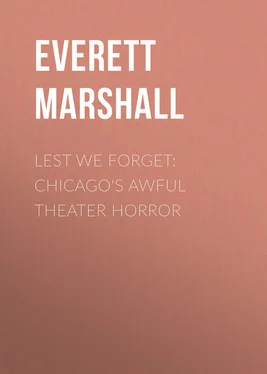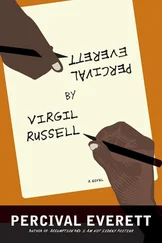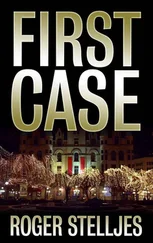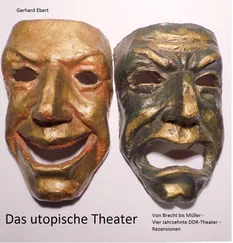Marshall Everett - Lest We Forget - Chicago's Awful Theater Horror
Здесь есть возможность читать онлайн «Marshall Everett - Lest We Forget - Chicago's Awful Theater Horror» — ознакомительный отрывок электронной книги совершенно бесплатно, а после прочтения отрывка купить полную версию. В некоторых случаях можно слушать аудио, скачать через торрент в формате fb2 и присутствует краткое содержание. Издательство: Иностранный паблик, Жанр: foreign_antique, foreign_prose, на английском языке. Описание произведения, (предисловие) а так же отзывы посетителей доступны на портале библиотеки ЛибКат.
- Название:Lest We Forget: Chicago's Awful Theater Horror
- Автор:
- Издательство:Иностранный паблик
- Жанр:
- Год:неизвестен
- ISBN:нет данных
- Рейтинг книги:3 / 5. Голосов: 1
-
Избранное:Добавить в избранное
- Отзывы:
-
Ваша оценка:
- 60
- 1
- 2
- 3
- 4
- 5
Lest We Forget: Chicago's Awful Theater Horror: краткое содержание, описание и аннотация
Предлагаем к чтению аннотацию, описание, краткое содержание или предисловие (зависит от того, что написал сам автор книги «Lest We Forget: Chicago's Awful Theater Horror»). Если вы не нашли необходимую информацию о книге — напишите в комментариях, мы постараемся отыскать её.
Lest We Forget: Chicago's Awful Theater Horror — читать онлайн ознакомительный отрывок
Ниже представлен текст книги, разбитый по страницам. Система сохранения места последней прочитанной страницы, позволяет с удобством читать онлайн бесплатно книгу «Lest We Forget: Chicago's Awful Theater Horror», без необходимости каждый раз заново искать на чём Вы остановились. Поставьте закладку, и сможете в любой момент перейти на страницу, на которой закончили чтение.
Интервал:
Закладка:
Trailing heavy planks used by them in the erection of working scaffolds, they rushed to a window in the lecture room of the law school directly opposite the exit and fire escape platform leading from the topmost balcony of the theater. By almost superhuman effort and ingenuity they raised aloft the planks, scarce long enough to span the abyss, and dropped them. The prayers of thousands below and a multitude stifling in the aperture opposite were raised that the planks might fall true. All eyes followed their course as they poised in mid-air, then descended. Slow seemed their fall, a veritable period of torture, and awed silence reigned as they dropped.
Then there arose a glad cry. With a crash the great planks landed true, the free ends squarely upon the edge of the platform of the useless fire escape, the others resting firmly upon the narrow window ledge where the painters stood defying flame, smoke and torrents of burning embers and blazing sparks hurled upon them as from the crater of a volcano.
Death alley had been bridged! Across the narrow span came a volume of bedraggled humanity as though shot from a gun. A mad, screaming stream, pushed on by those behind, simply whirled across the frail support, direct from the very jaws of death, the blistering gates of hell.
Only for a moment, a brief second it seemed, the wild procession moved. Yet in that limited period scores, perhaps hundreds, poured from the seething inferno – practically all that escaped from the lofty balcony that was a moment later transformed into the death chamber of helpless hundreds. Then the wave of flame, previously described, swept over the interior of the theater, greedily searching every nook and corner as though hungry for the last victim within reach.
The last refugees to cross the narrow span, the dizzy line sharply drawn between life and death in its most terrifying aspect, staggered over with their clothing in flames, gasping, fainting with pain and terror. The workmen, students and policemen who had rushed to their assistance dashed across into the heat and smoke and dragged forth many more who had reached the platform only to fall before the deadly blast. Then the rescuers were beaten back and the fire fiend was left to claim its own.
And claim them it did, searching them out with ruminating tongues of flame. Over every inch of paint and decoration, every tapestry, curtain and seat top it licked its way with insinuating eagerness. It pursued its victims beyond the confines of the theater walls, grasping in its deadly embrace those who lay across windows or prostrate on galleries and platforms. Thousands gazed on in helpless horror, watching the flames bestow a fatal caress upon many who had crept far, far from the blaze and almost into a zone of safety. With a gliding, caressing movement that made beholders' blood run cold it crept upon such victims, hovered a moment and glided on with sinuous motion and what approached a suggestion of intelligence in searching out those who fled before it. A shriek, a spasmodic movement and the victims lay still, their earthly troubles over forever.
A few minutes later, possibly not more than half an hour after the discovery of the fire, when the firemen had beaten back the flames to the raging stage another procession moved across that same plank again. It moved in silence, for it was a procession of death. The great tragedy began and ended in fifteen minutes. Its echoes may roll down as many centuries, compelling the proper safeguarding of all places of amusement, in America at least. If so, the Iroquois victims did not give up their lives in vain.
When the removal of the victims across the improvised bridge over death alley ended the tireless official in charge of that work, James Markham, secretary to Chief of Police O'Neill, had checked off 102 corpses. No attempt was made to keep count of the dead as they were removed from other portions of the theater and by other exits. The counting was done when the patrol wagons, ambulances, trucks and delivery wagons used in removing the dead deposited their ghastly loads at the morgues.
The instance cited was not an isolated example of heroism, but rather merely a striking instance among scores. Police, firemen and citizens vied with each other in the work of humanity. Merchants drove out customers and threw open their business houses as temporary hospitals and morgues. Others donated great wagon loads of blankets and supplies of all kinds and the municipal government was embarrassed by the unsolicited relief funds that poured in. All manner of vehicles were given freely for the removal of dead and injured. So informal was the removal of the latter that many may have reached their homes unreported. For that reason a complete list of the injured may never be secured.
An illustration of the possibilities in that direction is found in the case of one man who wrapped the dead body of his wife in his overcoat and carried it to Evanston, many miles away, where the circumstances became known days later when a burial permit was sought. Another is the case of an injured man who revived on a dead wagon en route to a morgue and was removed by friends.
All these and other details are elaborated upon elsewhere, together with the touching story of the scores of young women employed in the production, "Mr. Bluebeard," who would have been stranded penniless in a strange city a thousand miles from home but for the prompt and noble relief afforded by Mrs. Ogden Armour.
CHAPTER II.
FIRST AID TO THE INJURED AND CARE FOR THE DEAD
On the heels of the firemen came the police, intent on the work of rescue. Chief O'Neill and Assistant Chief Schuettler ordered captains from a dozen stations to bring their men, and then they rushed to the theater and led the police up the stairs to the landing outside the east entrance to the first balcony.
The firemen, rushing blindly up the stairs in the dense pall of smoke, had found their path suddenly blocked by a wall of dead eight or ten feet high. They discovered many persons alive and carried them to safety. Other firemen crawled over the mass of dead and dragged their hose into the theater to fight back the flames that seemed to be crawling nearer to turn the fatal landing into a funeral pyre.
O'Neill and Schuettler immediately began carrying the dead from the balcony, while other policemen went to the gallery to begin the work there.
In the great mass of dead at the entrance to the first balcony the bodies were so terribly interwoven that it was impossible at first to take any one out.
"Look out for the living!" shouted the chief to his men. "Try to find those who are alive."
From somewhere came a faint moaning cry.
"Some one alive there, boys," came the cry. "Lively, now!"
The firemen and police long struggled in vain to move the bodies.
The raging tide of humanity pouring out of the east entrance of the balcony during the panic had met the fighting, struggling crowd coming down the stairs from the third balcony at right angles. The two streams formed a whirlpool which ceased its onward progress and remained there on the landing where people stamped each other under foot in that mad circle of death.
In a short time the blockade in the fatal angle must have been complete. Then into this awful heap still plunged the contrary tides of humanity from each direction. Many tried to crawl over the top of the heap, but were drawn down to the grinding mill of death underneath. The smoke was heavy at the fatal angle, for the majority of those taken out at that point bore no marks of bruises.
Many, and especially the children, were trampled to death, but others were held as in a vise until the smoke had choked the life from their bodies.
It was toward this that the firemen directed O'Neill and Schuettler as they rushed into the theater. The smoke was still heavy and the great gilded marble foyer of the "handsomest theater in America" was somber and dark and still as a tomb, except for the whistling of the engines outside and now and then the shouting of the firemen. Water was dripping everywhere and stood inches deep on the floor and stairs.
Читать дальшеИнтервал:
Закладка:
Похожие книги на «Lest We Forget: Chicago's Awful Theater Horror»
Представляем Вашему вниманию похожие книги на «Lest We Forget: Chicago's Awful Theater Horror» списком для выбора. Мы отобрали схожую по названию и смыслу литературу в надежде предоставить читателям больше вариантов отыскать новые, интересные, ещё непрочитанные произведения.
Обсуждение, отзывы о книге «Lest We Forget: Chicago's Awful Theater Horror» и просто собственные мнения читателей. Оставьте ваши комментарии, напишите, что Вы думаете о произведении, его смысле или главных героях. Укажите что конкретно понравилось, а что нет, и почему Вы так считаете.












